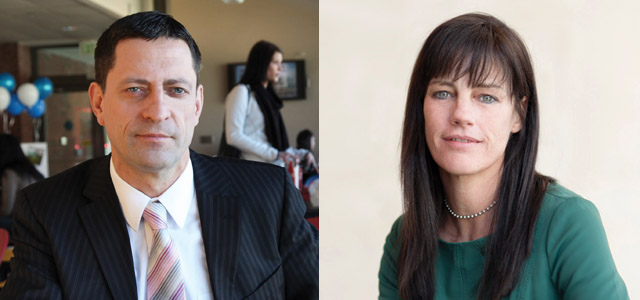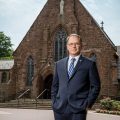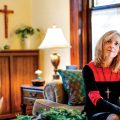Seton Hall is sponsoring American Council on Education (ACE) Fellows — like Juergen Heinrichs, professor of art history, and Judith Hunt, visiting associate professor of history — as part of its commitment to develop leaders in higher education.
Juergen Heinrichs has always been fascinated by cultural change — the ways in which seemingly disparate forces come together at just the right time to dramatically alter the human condition.
While the German-born art historian’s studies have taken him around the globe, his lens has turned toward home as he considers what might help Seton Hall secure its place as one of the top Catholic universities in the country.
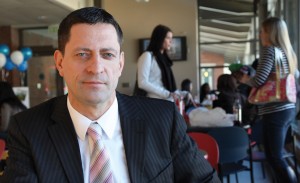 Heinrichs, an associate professor of art history, spent the 2011-12 academic year at Stevenson University in Baltimore as one of 50 participants in the American Council on Education’s Fellows Program — an intensive, yearlong series of campus visits, conferences and seminars designed to help develop academic leaders.
Heinrichs, an associate professor of art history, spent the 2011-12 academic year at Stevenson University in Baltimore as one of 50 participants in the American Council on Education’s Fellows Program — an intensive, yearlong series of campus visits, conferences and seminars designed to help develop academic leaders.
Judith Hunt, an ACE fellow from Loyola University in New Orleans, has been hosted by Seton Hall this year.
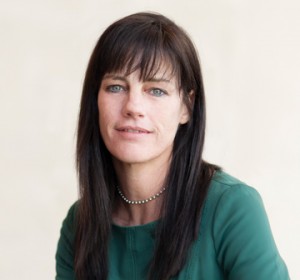 “Seton Hall has been sending and hosting fellows as a means of advancing cultural change,” says Sharon McDade, ACE’s director of Emerging Leaders Group/Fellows Program. “The university’s participation is really about change on a systemic level.”
“Seton Hall has been sending and hosting fellows as a means of advancing cultural change,” says Sharon McDade, ACE’s director of Emerging Leaders Group/Fellows Program. “The university’s participation is really about change on a systemic level.”
The program launched in 1965 as an academic leadership exchange for higher education organizations. The intent was to give future presidents, provosts and deans access to those in leadership positions.
“As an institution committed to developing the next generation of servant leaders, Seton Hall’s goals align with the Fellows Program,” University President A. Gabriel Esteban says.
To date, more than 300 university presidents graduated from the program. Among the 1,800 alumni are Monsignor Robert Sheeran, Seton Hall president emeritus, and Naomi Wish, director of the Center for Public Service.
“My yearlong experience with ACE changed my life professionally more than any other experience,” says Sheeran. “It made me very comfortable and confident with university leadership. And now Juergen has the chance to see the big picture of higher education from the inside of an institution.”
Heinrichs was familiar with ACE, having served as campus chair for the organization’s 2007 Internationalization Laboratory project to improve the experience of international students at Seton Hall. He was drawn to the opportunity to help shape the University that has defined his career for the past decade and to understand how Seton Hall’s mission fits within the context of not only American, but global, higher education.
“The story of internationalization is very much my own story. It’s what I’ve done at Seton Hall and how that’s changed me,” Heinrichs says.
Changing Perceptions
Hunt, Seton Hall’s visiting fellow, came to South Orange with the hope of learning about the demands of capital campaigns, alumni engagement and arranging a master building plan.
The associate dean for the college of humanities and visiting associate professor of history has been at Loyola since 2004, the year before Hurricane Katrina struck.
“Out of a devastating event, there is opportunity for people to work together to build safer, stronger and more just communities.” Hunt says. “Seton Hall is an ideal placement for me because of its excellence in higher education leadership, innovation in strategic planning and unwavering commitment to Catholic mission and identity.”
In addition to finding Seton Hall’s administration open to discussing the challenges and opportunities in higher education, Hunt has been struck by the depth of community at her host school.
“There’s a really rich intellectual and social life beyond the classroom. I’ve really enjoyed the diversity on campus,” she says.
Blazing a Trail
When Hunt resumes her work at Loyola this summer, Heinrichs will return to Seton Hall for the 2012-13 academic year. His experiences with the ACE Internationalization Laboratory project and Fellows Program have shown him that the University is poised to make a real difference in the lives of its students and surrounding community.
“Every department has a deep and quiet commitment to the human condition, and I think that’s what makes a Seton Hall education different,” Heinrichs says.
But the art historian admits that it’s the transactional side of university life that has been most eye-opening.
“Bookkeeping is not sexy stuff, but it’s what can change an institution,” he says. “It’s especially important at this time of economic scarcity. We have to think more creatively.”
The art historian has become a financial analyst with an artist’s soul.
Jonathan Bender is a freelance writer based in Kansas City, Mo.

